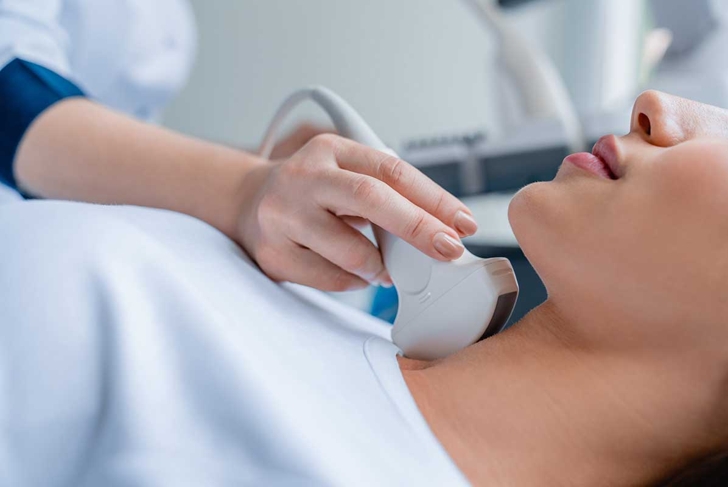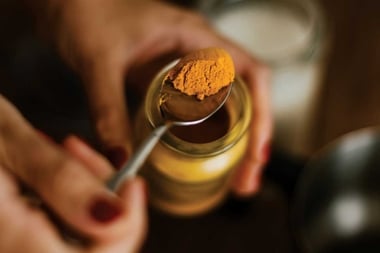
Two types of autoimmune disease affect the thyroid. The most common is Hashimoto’s thyroiditis, the most frequent cause of hypothyroidism. Grave’s disease (autoimmune hyperthyroidism) is less common. In both cases, the immune system becomes confused and begins producing antibodies against the thyroid. These antibodies cause inflammation and tissue destruction and, ultimately, symptoms of thyroid hormone imbalance. Here's what you need to know about Hashimoto’s thyroiditis.
Autoimmune thyroid disease

Autoimmune diseases occur when a perfect storm of genetic disposition and environmental factors triggers the immune system to turn on the body and destroy tissues—in this case, the thyroid.
The thyroid, located at the front of your neck, produces hormones that regulate metabolism and energy in your body and is the organ most commonly affected by autoimmune disease.
Hashimoto’s is more prevalent in women and in Caucasians, and less so in black and Asian individuals. The rates of Hashimoto’s also increase with age, with most cases diagnosed between 45 and 65 years of age.
Why is autoimmune disease more common in women?

Autoimmune disease is the fourth leading cause of disability in women. The stronger immune response in women is a major factor, leading to higher rates, and severity of autoimmune disease.
Hormones also have a role, as immune cells have receptors for estrogen and progesterone, the main hormones of the menstrual cycle. Estrogen, in particular, is a strong up-regulator of immune function.
Additional exposure to environmental xenoestrogens, such as in women’s cosmetics and body products, can add additional insult. The impact of estrogen on gut bacteria can also lead to changes that leave women more vulnerable to autoimmune disease.
Diagnosis of Hashimoto’s

Surprisingly, 40 to 60 percent of people with thyroid conditions don’t know they have one or at least haven’t been diagnosed with one.
To diagnose Hashimoto’s, a comprehensive thyroid panel is necessary. A thyroid stimulating hormone (TSH) test, along with additional testing for the presence of specific autoimmune antibodies, antithyroid peroxidase (TPO) and antithyroglobulin (TgAb), would be necessary to confirm a diagnosis. Without these test results, women would have an incomplete understanding of their thyroid condition.
Symptoms of Hashimoto’s

- weight gain
- fatigue
- depression
- increased sensitivity to cold
- joint/muscle pain
- dry skin
- dry, thinning hair/hair loss
- constipation
- brain fog/memory problems
- premenstrual syndrome (PMS)/irregular periods
Factors contributing to Hashimoto’s

Rates of autoimmune diseases are steadily rising, which has sparked heightened scientific interest in unravelling the underlying causes. Current theories include changes in our exposure to bacteria through a focus on hygiene and antibacterial products as well as an increased burden of environmental chemicals that overwhelm and confuse our immune system.
Nutritional deficiencies, notably vitamin D, iron, and selenium, have also been implicated in the development of autoimmune thyroid disease, as have viral infections and other assaults on our immune system.
Studies have also begun to explore the relationship of stress and exercise with a diagnosis of autoimmune disease.
Healing Hashimoto’s

While the conventional approach to treating all hypothyroidism is to regulate TSH levels with a levothyroxine (Synthroid) prescription, the autoimmune nature of Hashimoto’s requires a much more nuanced approach.
Selenium

An essential micronutrient, a lack of dietary selenium can worsen Hashimoto’s. Selenium modifies immune and inflammatory responses in the body and may reduce autoimmune antibodies in Hashimoto’s. Foods rich in selenium are Brazil nuts, sunflower seeds, crustaceans, tuna, mushrooms, and most meats.
Vitamin D

Across all ages, low levels of vitamin D are associated with an increased incidence of Hashimoto’s. Vitamin D is a vital regulator of the immune system, and low levels are seen in many autoimmune conditions. Everyone with autoimmune disease should have their vitamin D tested, and supplement if levels are low.
Probiotics

The microbiome, the population of bacteria in our bodies, is a powerful regulator of the immune system. Imbalances in the microbiome, known as dysbiosis, have been found in many autoimmune conditions. Probiotics and fermented foods, which support microbial diversity, may be helpful in treating, and preventing, autoimmune diseases.
Myo-inositol

A unique molecule, myo-inositol is involved in regulating the activities of hormones, including TSH. When combined with selenium, myo-inositol may reduce autoimmune antibodies in Hashimoto’s, increase thyroid hormones, and decrease TSH. While it is found in some fruits, beans, grains, and nuts, benefits of myo-inositol have only been found with supplementation.
Avoiding Gluten

People with Hashimoto’s have a higher risk of celiac disease, and research has found everyone with Hashimoto’s can benefit from a gluten-free diet. Avoiding gluten may reduce progression of Hashimoto’s and may reduce autoimmune antibodies. Gluten is found in wheat, rye, barley, and triticale.
Hashimoto’s healing plan

Please be sure to consult your health care practitioner to determine the right path for you.
Testing
- thyroid panel including TSH, free T3, T4, and thyroid antibodies
- iron and vitamin D
Lifestyle
- avoid chemicals in personal care products
- exercise regularly
- engage in stress reduction
- eat fermented foods for a healthy microbiome
Supplements
- vitamin D, if you are deficient
- iron, if you are deficient
- selenium, if your diet is inadequate
- myo-inositol may also be helpful



